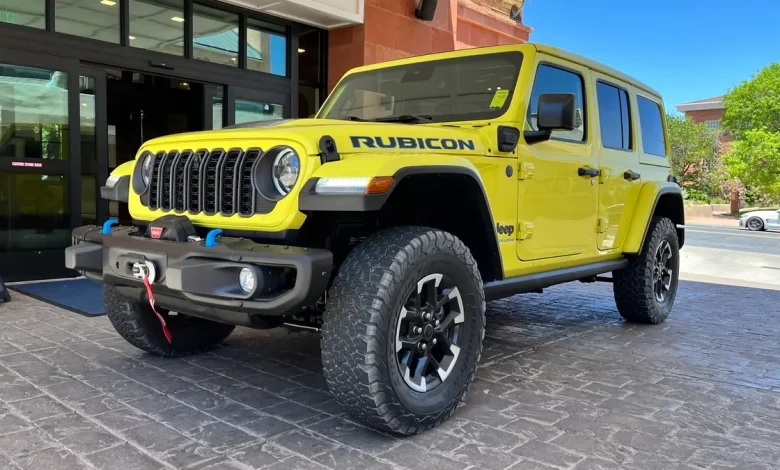Stellantis recalls 320,000 Jeeps due to battery fire risk, tells drivers ‘park outside’

Stellantis: Major brands, global reach, challenges for automaker
Explore the history of Stellantis, the automotive giant formed in 2021 through the merger of Fiat Chrysler Automobiles and PSA Group.
- NHTSA reported a recall of more than 320,000 hybrid Jeeps under the Wrangler and Grand Cherokee nameplates.
- The recall advises drivers to park outside and avoid charging their vehicles until they receive a remedy.
- A remedy has not yet been made available.
Stellantis is recalling more than 320,000 plug-in hybrid Jeeps because they may spontaneously catch fire.
On Tuesday, Nov. 4, the National Highway Traffic Safety Administration (NHTSA) announced that Jeep-parent Stellantis issued a recall for 2020-25 Jeep Wrangler plug-in hybrids and 2022-26 Jeep Grand Cherokee plug-in hybrids. Online filings with the federal agency indicate Stellantis first submitted the recall on Oct. 30.
According to the federal agency, Stellantis has yet to identify a remedy and is advising owners of the vehicles to park their cars outside and away from structures and other vehicles until a remedy is available.
Owners should not charge their vehicles and park them outside and away from structures and other vehicles until they receive the remedy. Charging a potentially damaged battery poses an elevated risk, as the chance of a fire is higher in a charged battery, NHTSA said.
The recall affects 228,221 Jeep Wrangler PHEVs and 91,844 Jeep Grand Cherokee PHEVs. The battery pack is the root of the issue, NHTSA said. Some battery packs may have cells with separator damage. In a battery, the separator is a thin, membranous material that separates the anode from the cathode in a battery. The separator is the material through which ions are transmitted in the battery.
This is not the first time this issue has been identified and recalled in hybrid Jeeps. In September 2024, the company recalled more than 150,000 hybrid jeeps for the same issue and later issued a remedy. The remedy was a software update, according to NHTSA filings, and did not require any new parts in most cases.
Since the software update for the previous recall, NHTSA says Stellantis has reported nine more fires in vehicles that were previously remedied. NHTSA reported that Stellantis is aware of one injury related to the fires. Stellantis officials did not share details when asked about the reported injury.
In a statement to the Free Press, Stellantis said a remedy is “imminent,” adding that “affected customers will be notified when they may schedule service.”
The previous remedy to the issue, which may not have been effective, was “based on the best available data at the time, using diagnostic algorithms to identify batteries showing early signs of potential failure,” Stellantis manufacturing and safety spokesperson Frank Matyok told the Free Press. “Since then, our understanding of the issue has evolved.”
The Jeep Grand Cherokee PHEV was the subject of another recall earlier this year after it was reported that some hybrid Grand Cherokees were at risk of losing propulsion while driving, which culminated in a Michigan family suing Stellantis after contentious arbitration and months without a vehicle.
Owners of potentially affected vehicles can review the recall online, and, beginning on Nov. 6, search to see whether their specific vehicle is affected through NHTSA’s VIN search function. The NHTSA recall number is 25V-741.
Liam Rappleye covers Stellantis and the UAW for the Detroit Free Press. Contact him: LRappleye@freepress.com.





